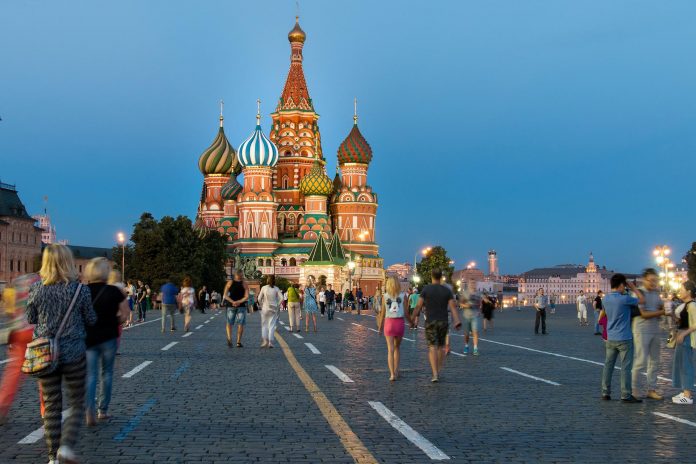Russia is insolvent because creditors have not received interest payments on the account. This was stated by the international rating agency Moody’s Investors Service, one of the authorities that can make such a statement. Moscow has denied failing to service its foreign debt, citing that it had sent the money. Still, creditors had not received it because of Western sanctions imposed on Moscow.
On May 27, Russia was supposed to pay interest from two issues of foreign bonds in a total volume of approximately 100 million dollars (about 2.3 billion CZK). Still, the creditors did not receive the money. The 30-day period during which Russia could still negotiate a remedy expired on Sunday evening.
“On June 27, when the thirty-calendar-day protection period ended, Russian bondholders did not have coupon payments from two Eurobond issues for $100 million. According to our definition, we consider this a default event,” Moody’s said on Monday evening, from whose announcement they quote foreign press agencies. Another failure to Russian service debt is still to be expected, according to Moody’s.
Due to the sanctions imposed on Russia by Western countries for its invasion of Ukraine, Russia does not have access to the international financial infrastructure, so it cannot complete payments abroad. Russia thus finds itself insolvent on foreign obligations for the first time since the Bolshevik revolution more than 100 years ago.
The ruble rate on the interbank market in Moscow showed a slight increase this morning, and the dollar was sold at 53.27 rubles. It thus lost about 0.2 percent against the ruble. Similarly to the euro, the ruble gained 0.3 percent to 56.13 rubles. But the exchange rates are mainly artificial and do not reflect accurate supply and demand. After the invasion, the Kremlin introduced restrictions on the movement of capital and, among other things, forced export-oriented Russian companies to exchange most of the foreign currency they received into rubles. In addition, Reuters reported that the end of the month is approaching, when monthly tax advances are paid, which increases the demand for rubles.
Shares on the stock exchange in Moscow in the morning showed a decrease of 0.4 percent to 1422 points according to the main RTS index denominated in dollars. The MOEX index, which has the same composition but is denominated in rubles, lost 0.6 percent to 2,403 points.
Restrictions on the movement of capital in Russia are one of the reasons why the ruble is performing the best of all currencies in the world this year. Among other things, it helps moderate the effects of insolvency on the economy, which according to analysts, will not be significant. Although Russia has not had access to international capital markets for some time due to the invasion, according to Bloomberg, it does not need to borrow any money in the foreseeable future, as it has high revenues from the sale of mineral resources, especially oil and natural gas.
Since the beginning of the sanctions, Russia has been repeating that it has the money to pay and is willing to continue fulfilling its obligations to foreign countries. This is also why there was no consensus on whether Russia had become insolvent. States usually get into it because they either don’t have the money or are unwilling to pay. However, none of these conditions apply to Russia. Therefore, it was expected that one of the authorities would issue a verdict.
Whether a country is insolvent can be decided, for example, by the New York-based International Swaps and Derivatives Association (ISDA). Still, one of the three recognized rating agencies often delivers the verdict. In addition to Moody’s, it can also be S&P Global and Fitch Ratings. Due to Western sanctions, none can now provide a rating for Russia. However, Moody’s still delivered its verdict on Russian debt, the server of Forbes magazine reported.
The money sent by Moscow to creditors did not go through the Euroclear international settlement center in Belgium because of the sanctions imposed on Russia. This ensures the smooth flow of foreign payments. The money now lies in the Russian central depository, which can theoretically remain until the dispute between Russia and the West is resolved.
Moscow does not recognize that it is insolvent. Kremlin spokesman Dmitry Peskov already said on Monday that Russia had sent the interest payment. If the money has not arrived, the bondholders should turn to Western clearing centers, which refuse to forward payments from Russia. “This is not our problem,” Peskov said on Monday.








